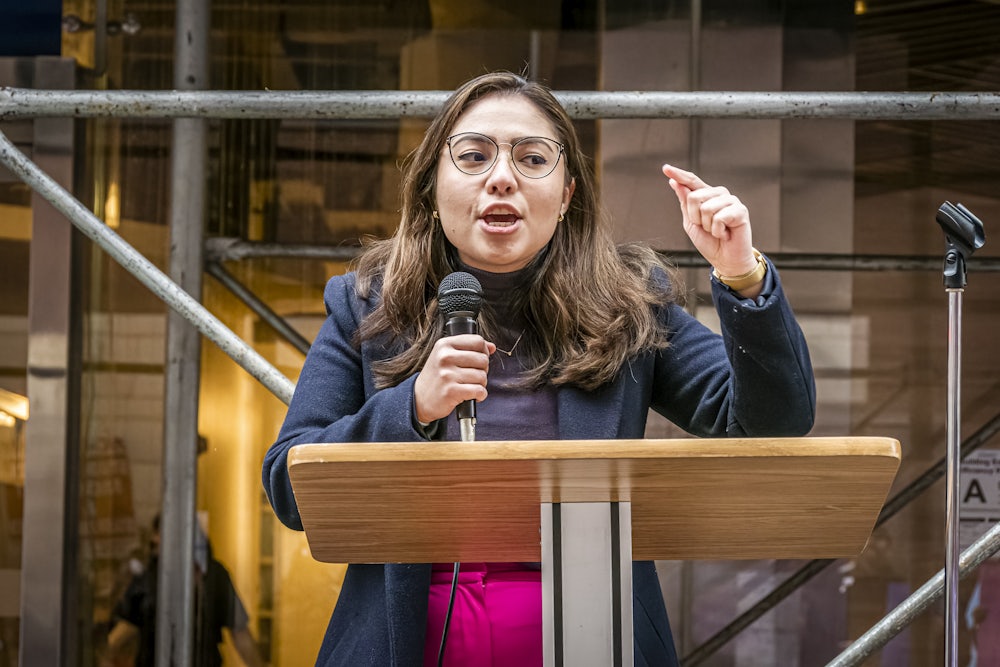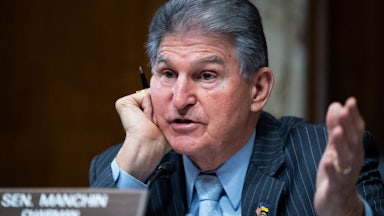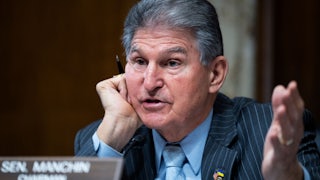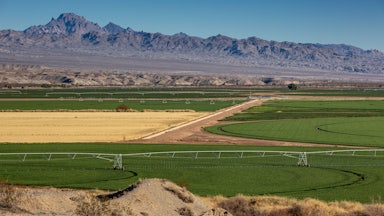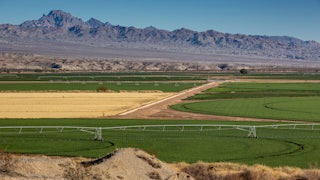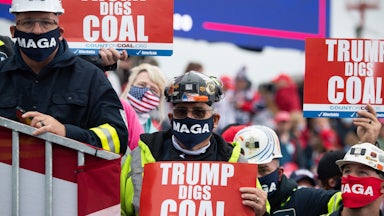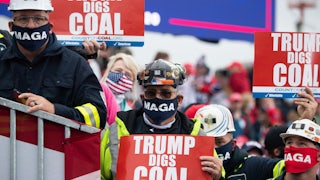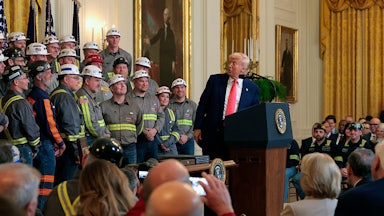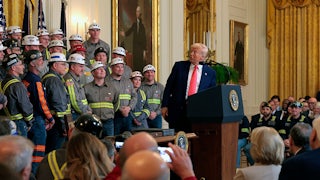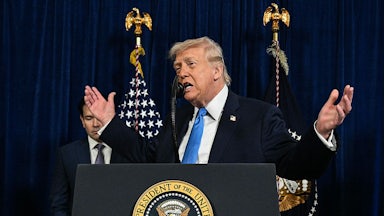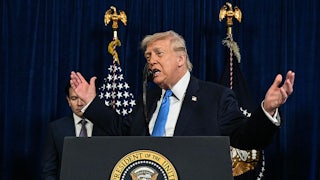In recent weeks, both houses of New York’s legislature have approved a historic plan to start a publicly funded renewable energy program, the state’s best hope for meeting its own emissions-reductions goals. Only the Democratic governor is standing in the way. If the bill’s proponents prevail, New York could become a model for how state and local climate policy could lead the country forward in the coming years.
The Biden administration, after huge victories with the infrastructure bill and the Inflation Reduction Act—the largest climate investments by the U.S. government in history—as well as numerous actions at the agency level, now seems to be running out of steam on the climate front. With some 18 months to go until the next election, the administration appears daunted by a trifecta of Congress, the courts, and misguided political caution. If the United States is to make further progress reducing emissions, it may have to come from state and municipal governments.
Other strong actions recently have included a New York City local law that will make all new buildings gas-free and impose emissions caps even on existing buildings, and a zero-emissions rule for trucks in California (passed in 2020 but approved by the Environmental Protection Agency last week, showing that the Biden administration has not completely lost its mojo for agency actions, although this one originated with the state). The latter policy has already been adopted by New York, New Jersey, Washington, Oregon, Massachusetts, and Vermont. Meanwhile, Massachusetts cities and towns one by one have been adopting a new code making it harder for developers to install fossil fuel connections in new or renovated buildings and requiring them to provide electrical wiring for subsequent electrification.
These are inspiring examples. But if it succeeds, New York’s Build Public Renewables Act, or BPRA, could potentially be the boldest challenge yet to the fossil fuel industry. That’s because of the principle it establishes: that the state should be empowered to provide clean energy if the private sector fails to. The bill is therefore seen by proponents and detractors alike as a possible foundation for socializing and centralizing control of all energy in order to effectively address the climate crisis and keep energy affordable and accessible to all. It provides a way of ensuring that public interest, rather than the profit motive, dominates energy generation.
BPRA has come as far as it has because of its proponents’ dual focus on building power in the legislature—new legislators Kristen Gonzalez and Sarahana Shrestha, elected last November, campaigned on the bill—and organizing grassroots pressure on Albany by door knocking and phone banking to get constituents to call their representatives. The idea for public ownership comes from socialist activists, while the momentum comes from Democratic Socialists of America’s organizing but also from the broad appeal to young people who see the urgency to push for climate solutions that don’t leave their futures in the hands of the same corporations that have already put them in jeopardy.
It’s unusual for members of Congress to weigh in on state legislation, but it’s indicative of the significance of Build Public Renewables that Jamaal Bowman, Alexandria Ocasio-Cortez, and seven of their colleagues from the New York delegation have been pressuring the governor on the issue.
Unfortunately, however, undue political caution and corporate ownership of Democratic politicians are problems that bedevil New York as much as our national politicians. Earlier versions of the BPRA stalled both last year and the year before. If BPRA doesn’t happen this week, it will be because of Democratic Governor Kathy Hochul.
Hochul has introduced her own version of BPRA that activists call “BPRA lite.” It lacks the labor protections of the original—part of the strength of BPRA is that it ensures that the new jobs it creates will be good ones, which has enhanced its popularity, in addition to being good policy. Hochul’s version would also make building public renewables voluntary for the power authority, while the actual BPRA mandates it, a classic difference between unserious and serious regulation.
Hochul’s energy policy in general has been all over the map of late. The governor recently introduced a pro-fracking bill and gave a massive amount of heavily discounted renewable energy to Amazon. She also briefly supported a legislative effort to weaken the state’s climate laws by undermining its methane emissions controls, before reversing course this week.
In addition to these terrible ideas, the governor has persisted in derailing any public debate on climate by loudly insisting on overhauling the state’s bail reform laws, a sop to deceptive right-wing rhetoric on crime. Panic on public safety easily commands media attention, and Hochul has used that dynamic to distract attention from all other popular priorities, including BPRA. In 2018, after progressives won more seats in the legislature, the state’s cash bail laws were overhauled to avoid penalizing the accused for poverty. Violence and public disorder are real problems, but there’s no evidence that this reform has contributed, yet Governor Hochul has completely caved to—and perpetuated—this widespread Republican-fueled perception that it has. Even though misinformation of this kind almost cost her the governorship last November, she’s happy to exploit it to distance herself from the party’s left flank and distract from the public debate on climate policy.
Regardless of the outcome of the current Albany budget fight, of which BPRA is one part, the fact that BPRA has come this far—and even inspired a cheap knockoff—is a testament to the hard work of New York’s left-leaning climate coalition. The fact that Hochul felt she had to come up with a watered-down alternative is a sign of BPRA’s momentum; even her version will allow New York to reduce emissions and access enormous amounts of Inflation Reduction Act cash that would otherwise be off-limits to the state. Getting the New York legislature to work together and get serious on climate represents major progress for this relatively new coalition.
Still, Hochul’s version is not good enough; the climate movement at this juncture is too mature to compromise on labor protections or allow industries to do anything voluntarily. New York must pass the strong version of the bill—or elect a new governor if Kathy Hochul can’t get out of the way.
